Fandom is no longer the place to store your game or community wiki

Platforms like Fandom (Also known as Wikia) have long been a hub for fan-driven content creation and collaboration. However, beneath the surface, it can get quite ugly. Various controversies have prompted many communities to migrate away from Fandom in search of cleaner, more community-centric alternatives. Large wikis, such as Runescape's two wikis (which are a life-saver), have completely migrated away from it and seen extremely large success in it.
Let's decipher what Fandom's done wrong, shall we?
Fandom's dirty practices
Advertisements and Intrusive Pop-Ups
Fandom’s aggressive use of advertisements and pop-ups has increasingly disrupted user experience. Pages cluttered with ads often hinder the accessibility of content, pushing users away and creating a frustrating browsing experience.
We can use their video ads as an example. Fandom added enormous video overlays that follow you around as you scroll. Quiet annoying - innit?
Lack of Customization and Control
Communities on Fandom have limited control over the appearance and functionality of their wikis. This lack of customization stifles creativity and hampers the community’s ability to tailor their platform to suit their specific needs.
Runescape's new Wiki allowed it to connect the game API's, item prices and statistics right into the Wiki, which Fandom was severely lacking in.
Monetization Over Community:
The platform’s focus on monetization often overshadows the needs and desires of the community. Decisions prioritizing revenue streams frequently disregard the input and concerns of the very users that sustain these communities.
Data and Privacy Concerns:
Fandom's handling of user data and privacy has been a subject of concern. Users have raised issues regarding data collection practices, leaving many worried about the security of their personal information.
Independent wiki's may use useage analytics for example, but they are only there for the community.
Here's the explanation by the Runescape wiki admins for the reasons to switch. Most notably:
- The state of advertisements on Wikia is horrendous and not improving.
- Wikia's movement away from wiki content to clickbait editorials.
- Wikia's increasing control over our site content, via things like JS review and by pushing their own videos over the actual articles.
- Wikia's security history is terrible; historically, they haven't fixed a problem until someone abuses it.
- Wikia's software is super out of date. MediaWiki 1.19 is six-and-a-half years old and grossly incompatible with new/updates to extensions. Security fixes and similar have to be backported and Wikia's custom additions are mostly things we don't like (and the ones we do have better extensions in current MW).
- Wikia don't care about us. We had a discussion with Wikia earlier this year - most of our concerns have yet to be addressed. Not to mention the entire fiasco with featured videos, javascript review, new infoboxes, and so on. Just, they don't care about us or any community in general.
We can solve all of the above by not being on Wikia. Additionally, there’s major upside to having control over our own infrastructure:
- We get to use the latest MediaWiki version, 1.31 (and keep upgrading it as updates are released).
- We get to use new and updated extensions, or even create our own: we can stop using MediaWiki for exchange prices, make interactive maps, create better calculators… so many opportunities for cool stuff when we’re not limited by Wikia.
- We get HTTPS everywhere by default
- 2FA is available for all accounts
- We use a new full width skin, the same used by Wikipedia, allowing us to display more content on the page, rather than the page being riddled in advertising.
- We get to expand out into auxiliary things that we can integrate into the wiki - some of you have already been using our general purpose tool server, where we're collating editing tools. There's plenty of things we can do and there are some grand plans percolating.
That all said, the most important thing is that the people running the wiki will be people that actually care about the games and the communities.
The alternatives
1. MediaWiki:
Communities: Runescape Wiki, Memory Alpha (Star Trek), and Uncyclopedia are a few notable communities that have migrated to MediaWiki. Its open-source nature, extensive customization options, and robust community support make it a popular choice for those seeking more control and flexibility.
2. Gamepedia (CurseForge):
Communities: Minecraft Wiki, Dota 2 Wiki, and Path of Exile Wiki are hosted on Gamepedia, offering a specialized platform tailored for gaming communities. Gamepedia provides a more streamlined experience, focusing on gaming-specific features and tools that cater to the needs of these communities.
3. DokuWiki:
Communities: Communities like the Gentoo Wiki have chosen DokuWiki for its simplicity, lightweight nature, and ease of use. DokuWiki's focus on simplicity and ease of maintenance appeals to communities looking for straightforward yet effective wiki software.
4. WikiJs:
Communities: Typically, smaller teams, startups, or organizations seeking a more user-friendly and modern wiki platform have been exploring WikiJS due to its emphasis on contemporary features and ease of use. WikiJS presents a compelling alternative to wiki platforms with its sleek interface, support for Markdown, built-in Git version control, and simplified setup process. It's akin to upgrading from a reliable yet older model to a sleek, modern vehicle packed with contemporary features.
Which one to choose?
Each wiki software has its strengths, and the choice would heavily depend on the specific needs and goals of the community I'm aiming to serve. However, considering various factors, I might lean towards MediaWiki for its versatility and extensive customization options. Here's a quick breakdown of MediaWiki:
Pros
- Open-Source and Community Support: MediaWiki being open-source means a wealth of community-contributed extensions, plugins, and themes. This fosters a vibrant ecosystem where users can customize extensively based on their needs.
- Proven Track Record: It's the software behind Wikipedia, indicating its scalability and ability to handle massive amounts of content and users effectively.
- Flexibility and Customization: The level of customization and control offered by MediaWiki allows for tailoring the platform to suit unique community requirements. From templates to extensions, MediaWiki's flexibility offers a wide range of possibilities.
- Extensive Documentation: Due to its popularity and history, MediaWiki has a vast array of documentation and community support available. This makes troubleshooting and learning easier for both administrators and users.
- Interoperability: MediaWiki's ability to integrate with various tools and extensions can enhance user experience, making it easier to incorporate features like forums, chat, or other community engagement elements seamlessly.
Cons
1. Maintenance Challenges for Major Upgrades: Major version upgrades often present challenges, necessitating external expertise for troubleshooting. Issues tend to arise, particularly when multiple plugins are in use.
2. Complexity Hinders Individual Administrators: MediaWiki's complexity makes it a less-than-ideal choice for individual administrators seeking a hassle-free, user-friendly experience. Its intricate setup demands a level of technical prowess.
3. Time-Consuming Troubleshooting: Issues stemming from plugin interactions or updates can be time-consuming to resolve. Troubleshooting may demand hours, especially when multiple plugins are involved.
4. Notable Lack of Quality-of-Life Features: In its native state, MediaWiki lacks certain quality-of-life features for admins, making routine maintenance and management less intuitive and more cumbersome.
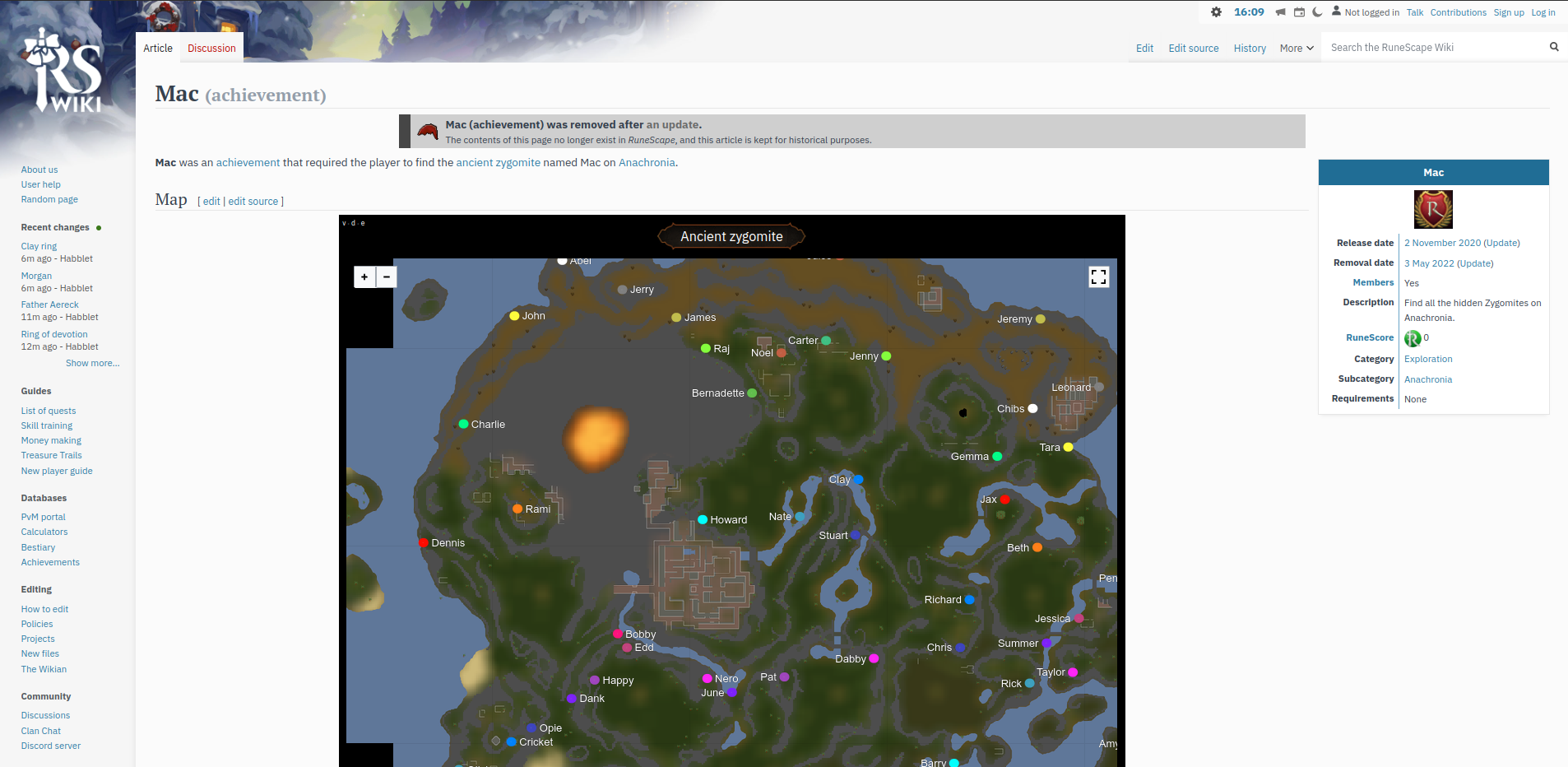
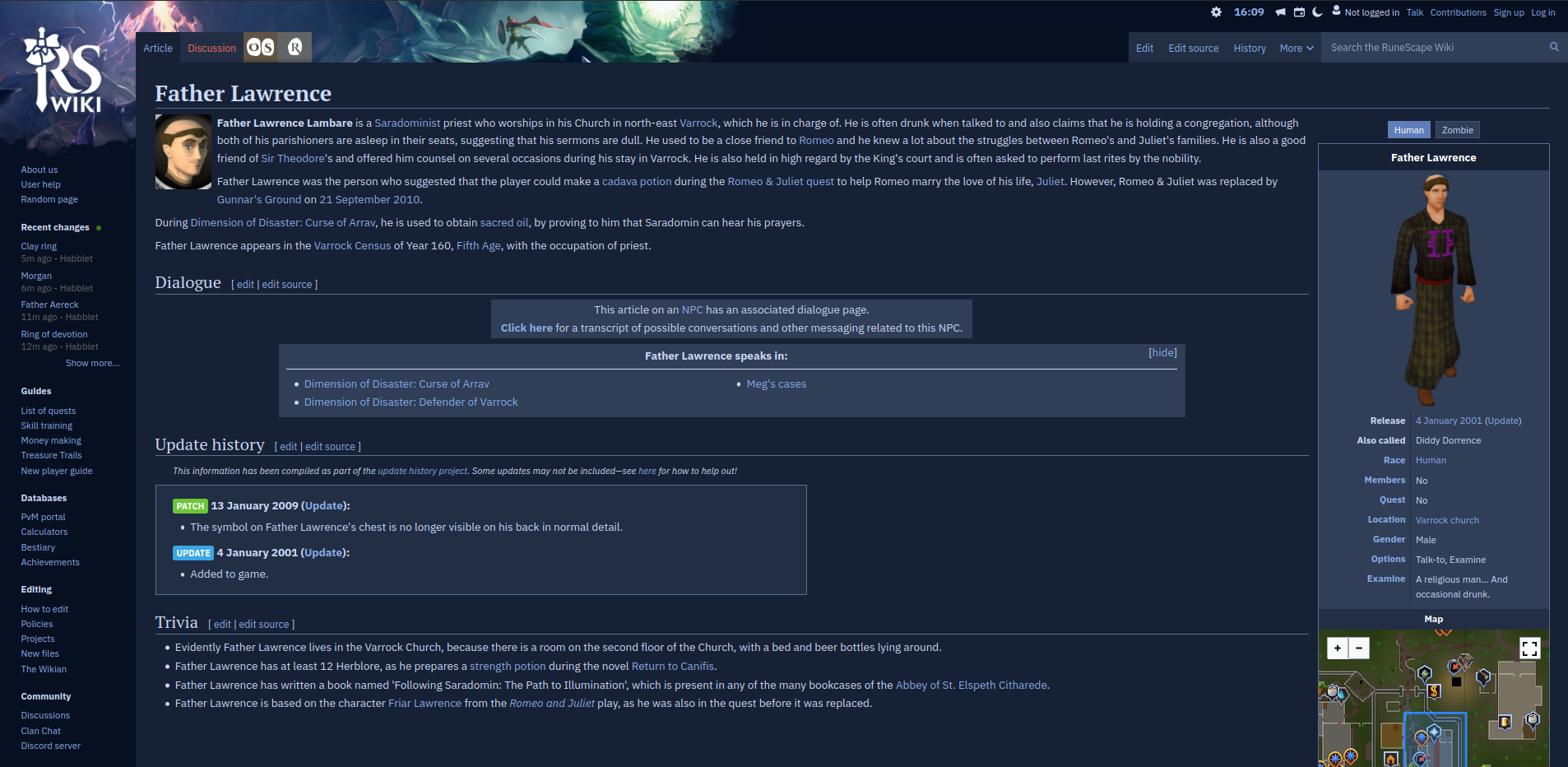
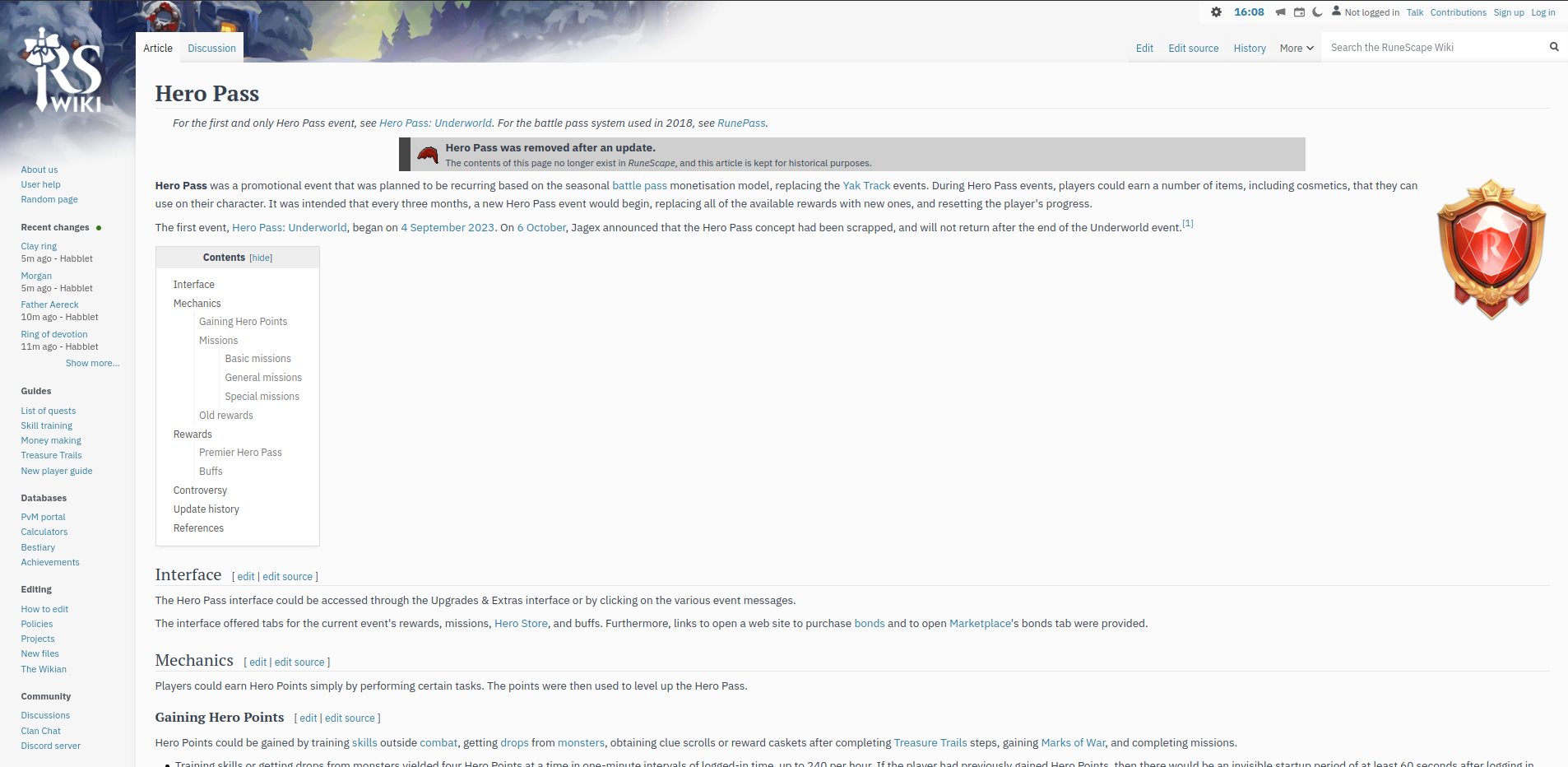
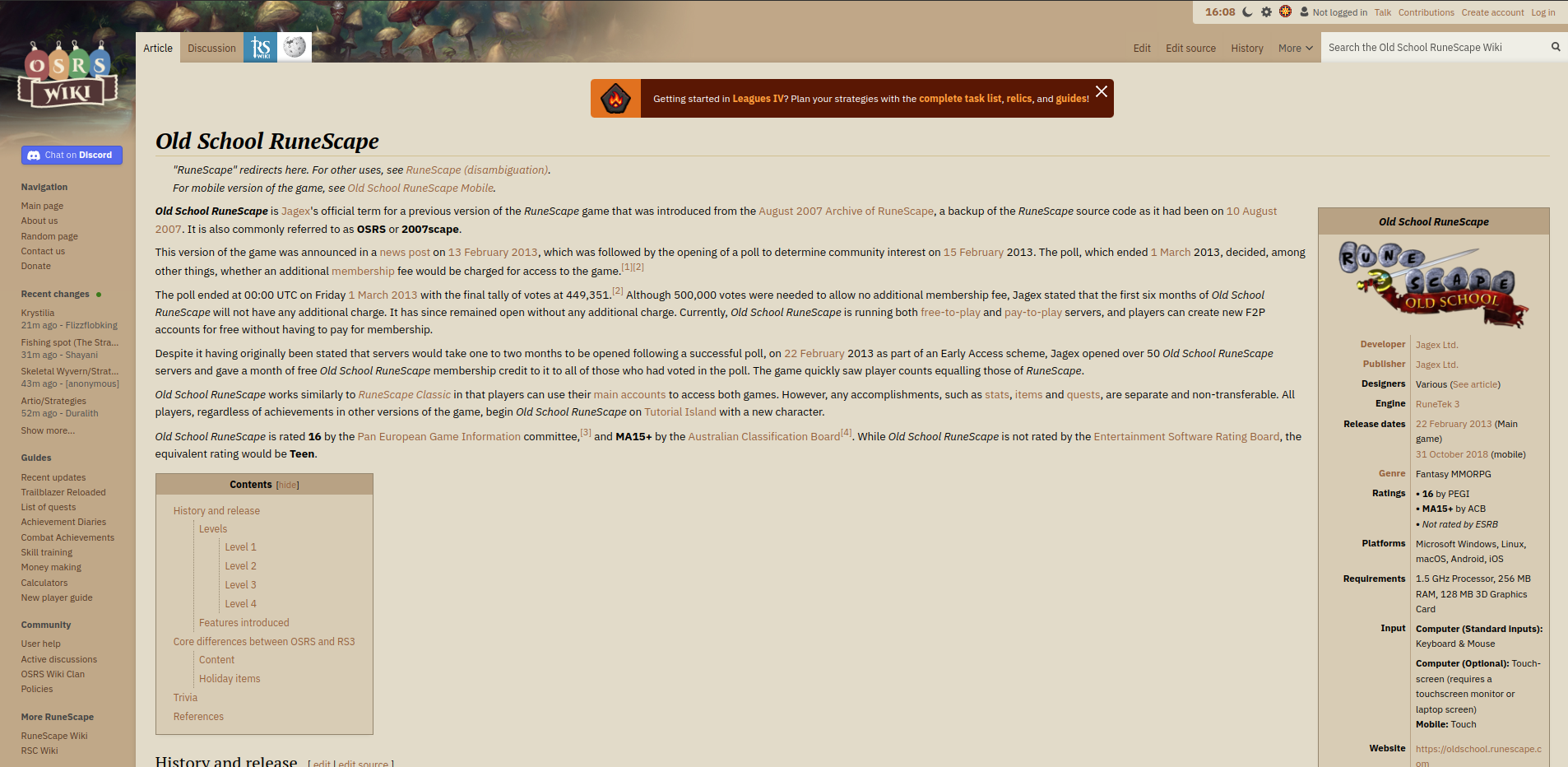
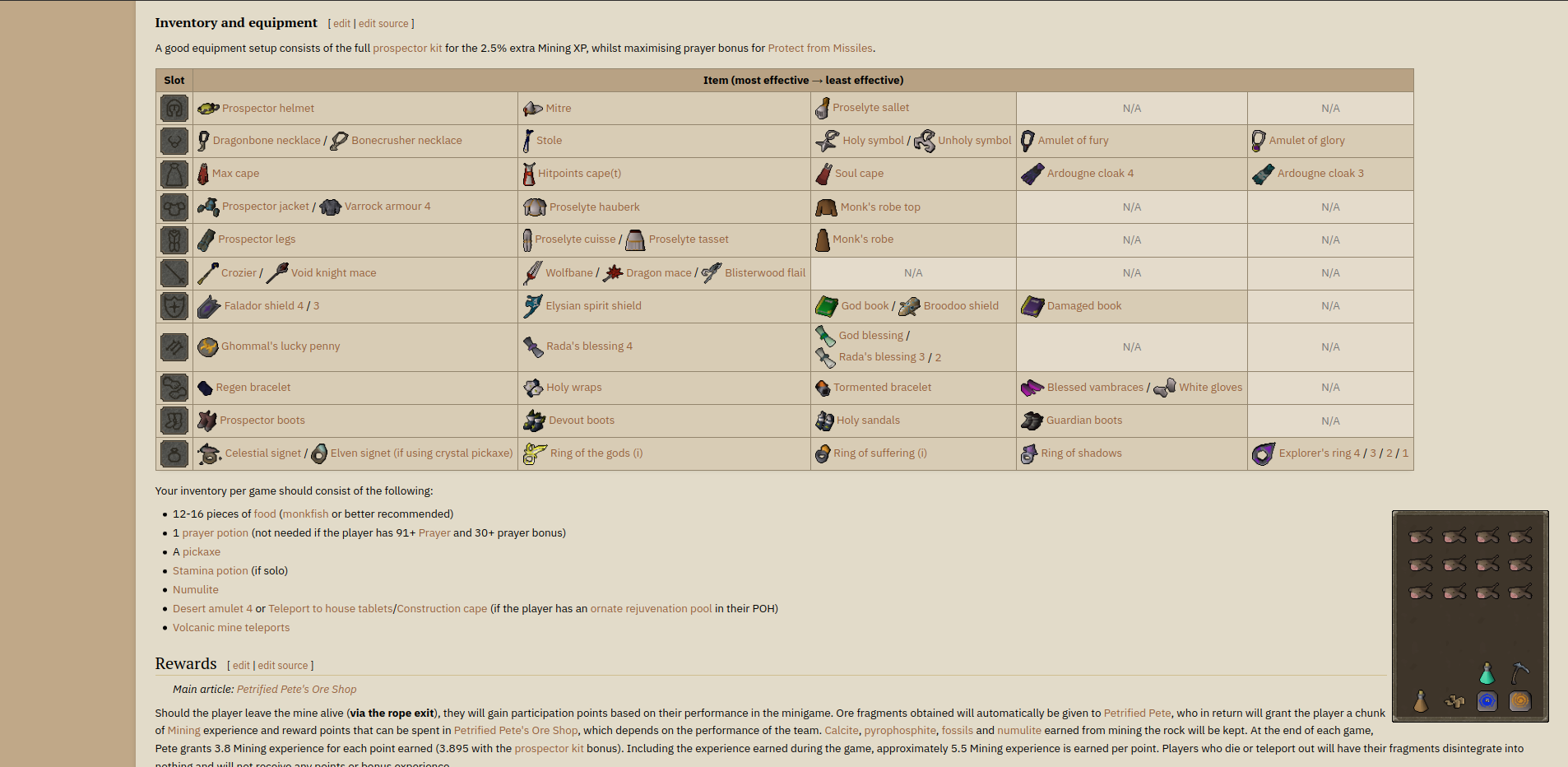
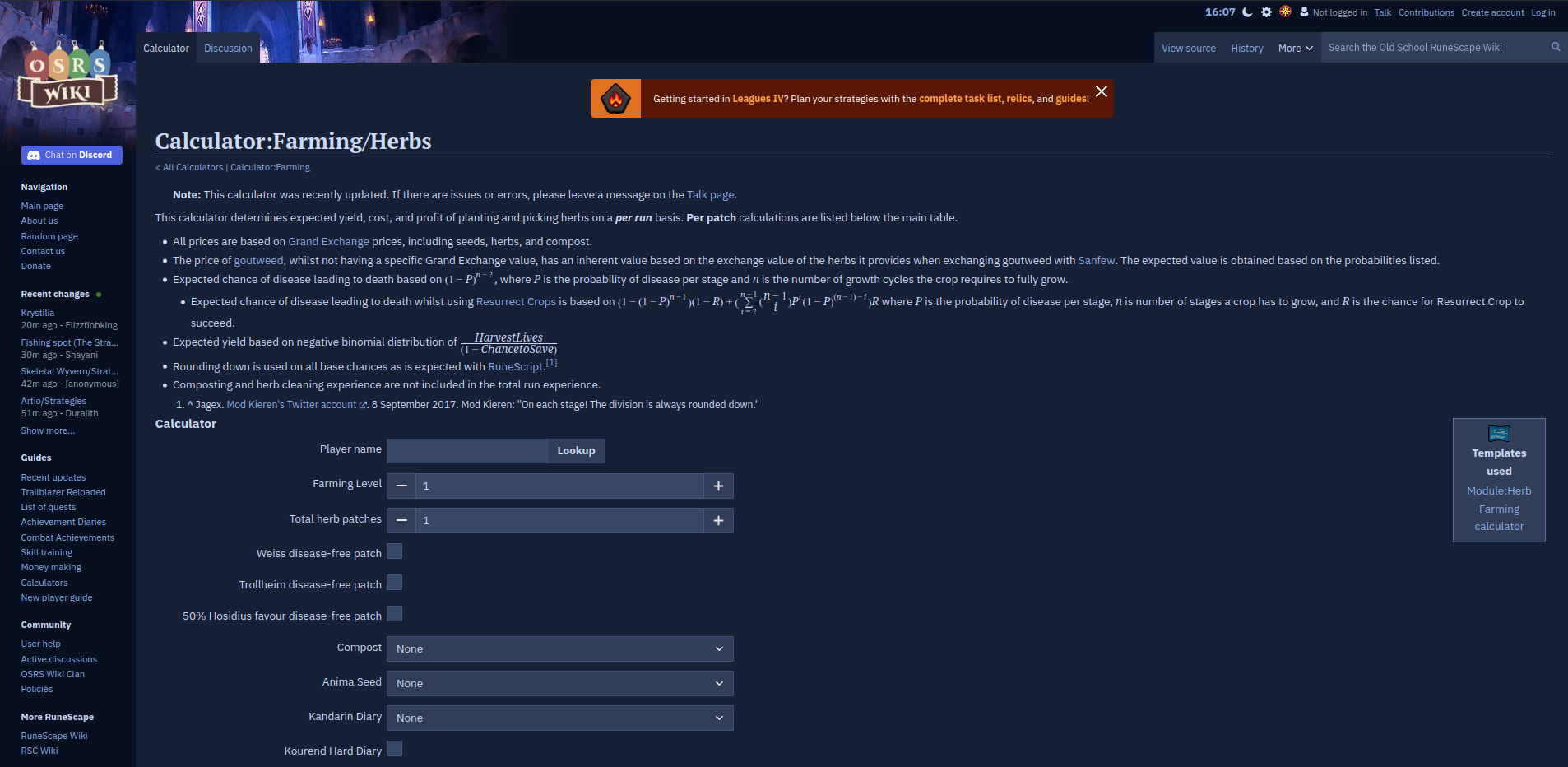
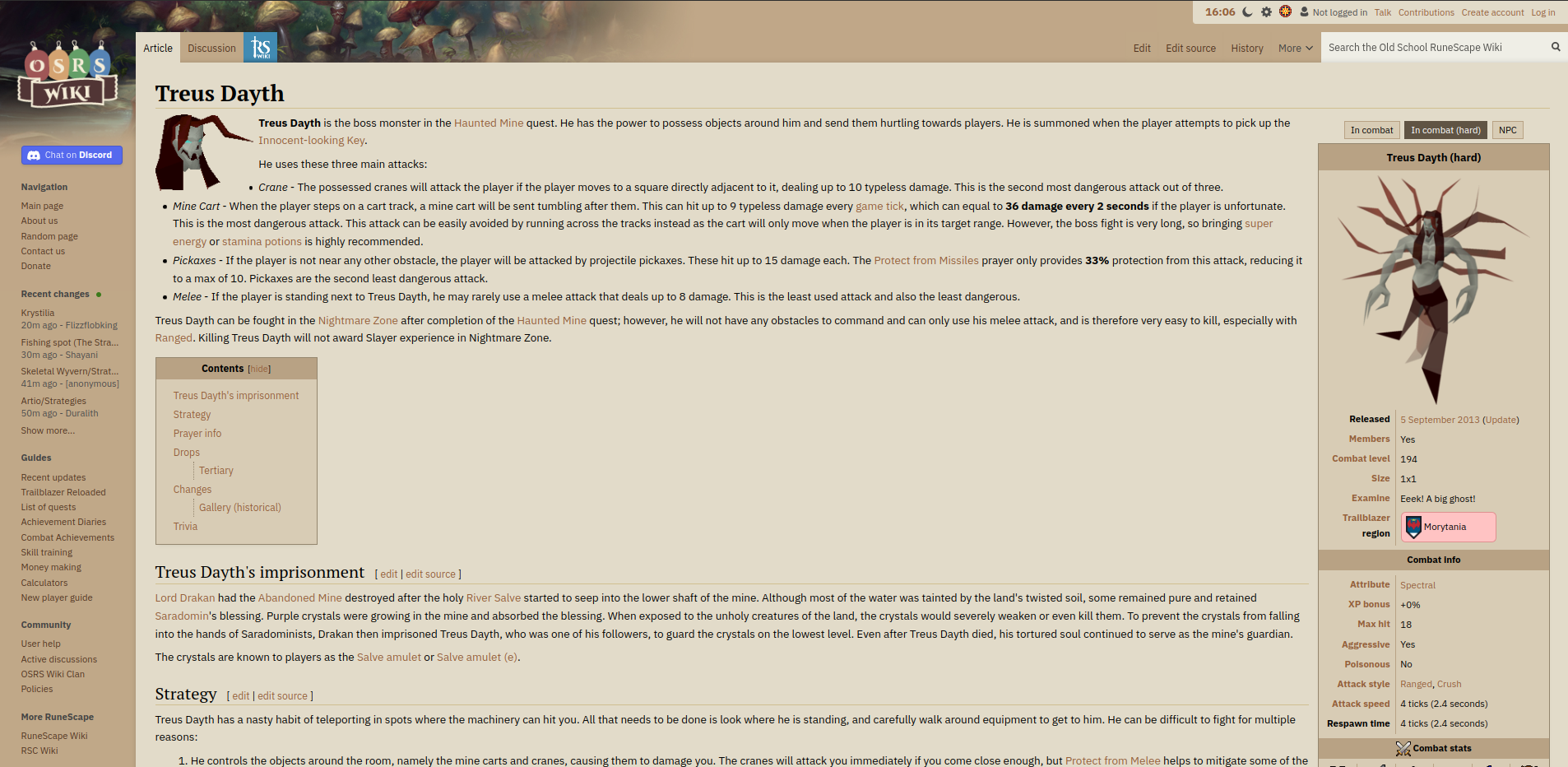
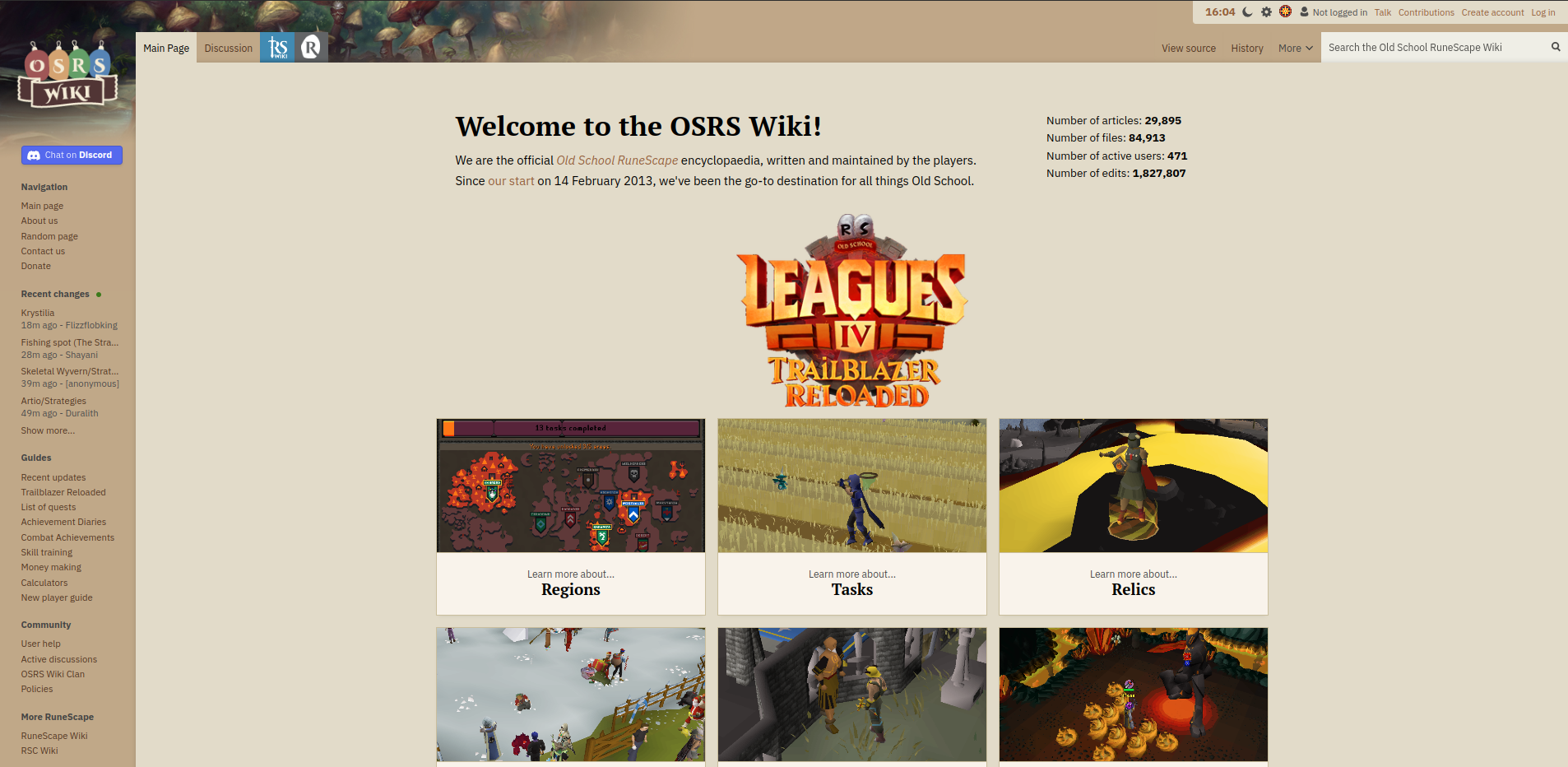
Runescape and Old School Runescape wiki pages, powered by MediaWiki
What if I want something simpler?
The gist of it? It is hard to beat MediaWiki in terms of extensibility. WikiJs would be a good second choice (also modern!). While it might not offer the extensive customization of MediaWiki, WikiJS emphasizes modern collaboration and a more intuitive user experience, making it a suitable choice for teams seeking a straightforward wiki solution.





